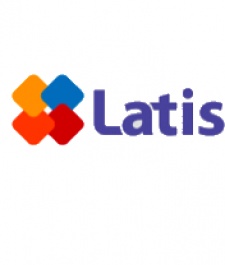You may not be aware, but the Korean games industry is currently in a state of flux.
Proposed new laws threaten to wreak havoc on what is a thriving gaming community, with the country's politicians openly arguing that games are as addictive as narcotics.
With new proposed taxes looming over game sales also thrown into the mix, it's natural that many Korean developers are now looking abroad for future growth. Foreign markets may just hold the key.
For these developers - and, indeed, those in the west looking to penetrate into Korea's massive mobile playerbase - proper localisation and translation are essential.
We caught up with one of the oldest established localisation companies in Korea, Latis Global Communications, at G-Star to talk about what it takes to bring a game from the east to the west and vice versa.
Pocket Gamer: Translation and localisation are extremely important when expanding into a new market - what advantages does Latis offer over other translation services?
Curtis File: Our collective experience is what sets us apart.
Not only do we have a team of talented translators with game industry experience, we also provide technical writing services giving us a pool of well-rounded translators and writers that can write both creatively as well as clearly and concisely.
As one of Korea's oldest localisation studios, we have long-standing relationships with many of the nation's developers and publishers.

Our experience with them has given us insight into the every facet of the game development process, from concept development to marketing.
As a result we are able to share our insights with new clients to help make the smoothest localisation process possible while delivering a high quality product.
A strong localisation requires going beyond simple text translation, what steps does Latis take to ensure that a game hits the right cultural notes?
The two keys to good localisation are good communication and native review. A strong relationship with the developers where conversation can happen smoothly and openly is probably the biggest asset you can have as a localisation company.
When you can ask the developer questions about their content and about creative solutions, you are guaranteed to end up with a higher quality localisation.
At Latis we try to establish strong lines of communication early on and we go through a familiarization period with the game. The quality assurance team spends up to two weeks - depending on the size of the game - playing and getting a feel for it. We're then better able to understand the atmosphere and style of the game and adapt it accordingly.
In addition to that, native review is, I believe, imperative. A native writer of the target language needs to review the text and make changes to unnatural or awkward phrasings.
Sometimes this may mean distorting the original meaning of the source text, but big changes can always be discussed with the developer or publisher.
In the end, it's important that the game feels as natural as possible and this can only be accomplished with a native reviewer.
To make sure that our localisations are the best quality we have in-house English, Chinese, Japanese, and Korean reviewers and any content that is done in other language is reviewed by a third party freelancer or vendor not involved in the original translation to ensure an objective analysis of quality.
What are the most important things for a developer to pay attention to during the translation and localisation process?
Where developers really need to pay attention is before localisation and translation ever begins. They need to think about design with multiple languages in mind.
In particular, not every language treats gender or numbers the same, so consider how these things will appear in your game. Numbers are a frequent problem we deal with because they are often embedded into tags that cannot be altered and this means coming up with creative solutions to fix it.
Flexible UIs that can accommodate multiple languages are also very important. A static UIs engineered with only Korean in mind present a major problem for localizing into western languages, which tend to have much longer words.
Ultimately it comes down to planning with the future in mind. You'd be surprised how much time and money can be saved with a small amount of discussion early on.
Are there any sorts of games which shouldn't be localised to Asian markets? Why, or why not?
I would never say "don't localise your game" for any particular market, but I would pay attention to what distribution channels are available and have realistic expectations.
For example, indie PC game developers in the US would probably have a tough time getting their game noticed in Korea given that Steam has such low penetration here.
It ultimately boils down to cost-effectiveness and how far you want to go with localisation. Knowing that console gaming is relatively unpopular in Korea, a lot of companies do not localize all of their game assets for a Korean release.
It is very common for console releases to simply be subtitled with incomplete or non-existent UI translations because, ultimately, it is not worth the thousands of extra dollars to redo all of the voice-overs and dialogue in a new language.
What challenges do you face in localising Korean games for western markets?
In terms of cultural differences, those are actually quite easy to address.
We have a number of people on our staff to help us understand the cultural nuances and references in the game text and were capable of coming up with ways to adapt them into new markets. The most prevalent and consistent issue is finding high quality translators.
When possible, it is always better to have the translator translating into their native language. This means we often need native English speakers with a high level of Korean ability.
There simply are not that many native English speaking translators available to do Korean translation, and those that exist are often quite expensive.
When we can't find a native English speaker to do the translation, we must add additional steps to the quality assurance process to make sure the translations are well-written and accurate.
Do you feel that the "Shutdown Law" - which prohibits children under the age of 16 from play games from midnight to 6am - has increased the interest in Korean developers to look toward western markets?
I think the law, in addition with the other recent proposals targeting game businesses, have harmed Korea's industry in a number of ways.
It has definitely increased the interest of Korean developers to look abroad, but it's also really harmed the community of small developers here.
The new law proposing a tax on game sales is likely to have a bigger impact on the industry than the shutdown law. It has made it extremely expensive to develop a game while at the same time making the market unattractive to companies thinking about coming into Korea.
I would also note that the shutdown law hasn't affected the mobile industry in Korea, which is arguably where the Korean game industry's focus is headed.
However, the new proposals for taxing games will definitely have an impact on the mobile industry and I think we will see a lot more emphasis on expanding into new markets with mobile games in the future.
Those interested in learning more about Latis' services can visit its website for more information.

















